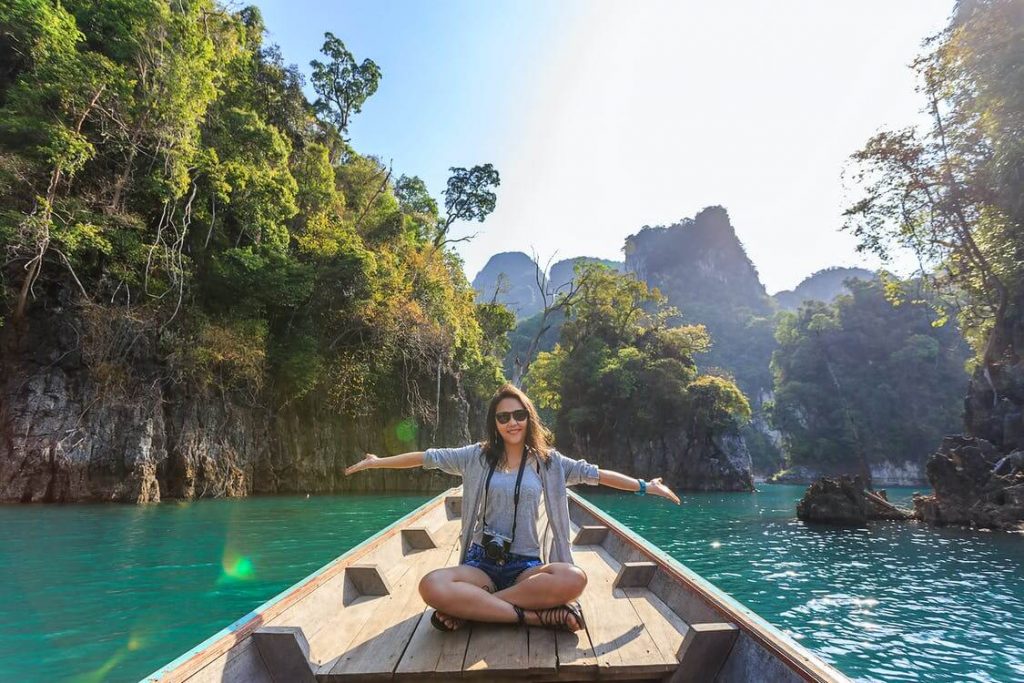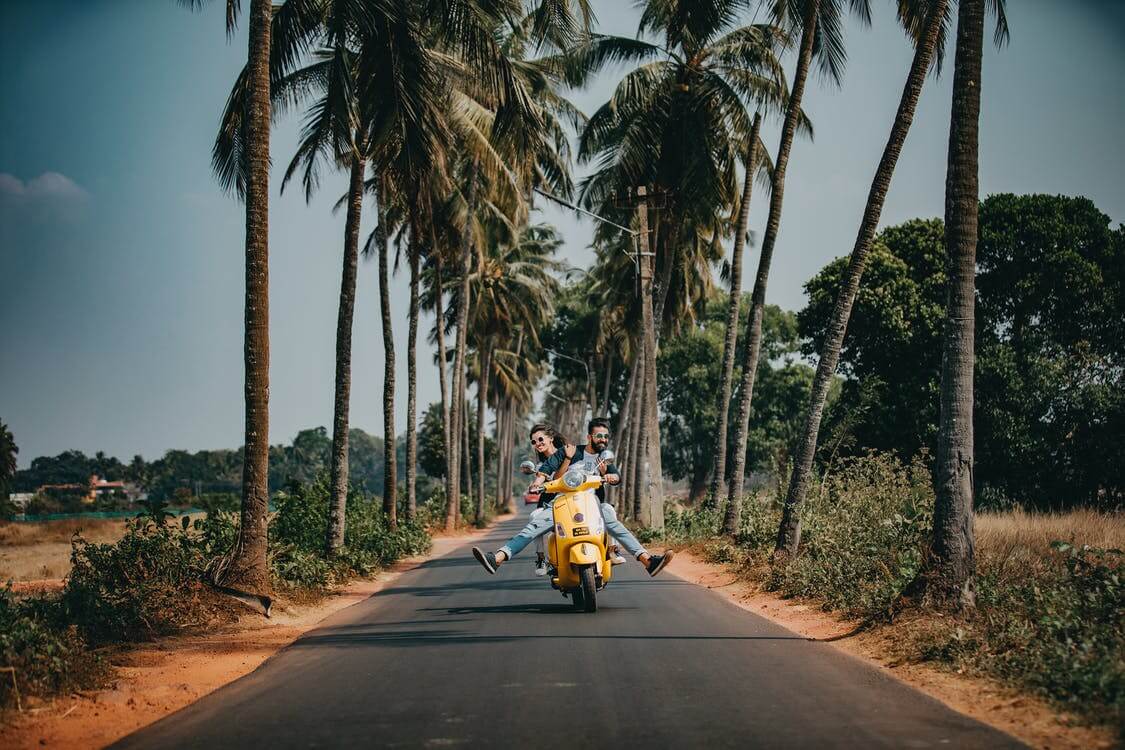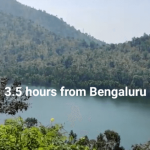
By Aratrika Dey
Travelling overseas can be a real gift for any individual. However, living through a pandemic, some things have changed indefinitely. Traveling abroad from India for tourism purposes remains suspended since March 2020. But this piece of information should not dampen a wanderer’s interests. Domestic flights resumed from May 2020, and interstate travel restrictions are relaxed. Even if it’s not by much, the rules offer something to placate the traveler’s mind.
Incredible India upholds a diverse mirror, that ranges from mountains in the north to tropical beaches in the south. From grand temples that offer a mystifying and spiritual experience to remember, there are the historical towns that chronicle the rich and culture-packed past of our country. Exploring our country is by itself rewarding. However, what is the single-most-important factor that determines if, where, and how you get to travel? Money. In the wake of the COVID-19 pandemic, travel has become a slightly expensive affair as safety restrictions have prevented access to places and resources.
Here are a few tips and tricks to make your travel experience more fulfilling and easy on the pocket.
COVID rules!
Even though the states have relaxed limitations, there are a few rules mandated by every state government. Not every state’s requirement is the same. There are few which can be circled out as common among them. Let’s take a look!

All states have made it mandatory for any individual traveling from any other state to undergo either institutional quarantine for seven days, followed by home quarantine for the same number of days. Some, however, are passing off with just fourteen days of home quarantine. If you are simply passing through one state, such as a layover at Delhi for a few hours, and not leaving the airport, no quarantine rules apply. But you will have to abide by the quarantine rules of the final destination upon arrival. All airports have been following thermal screening procedures upon arrival, while some airports are stamping passengers on their hands.
Travelers are being asked to carry self-declaration forms and download the Arogya-Setu mobile application. In places such as the Kolkata airport, every passenger has to show their flight ticket alongside identification and Arogya-Setu status. The biggest requirement is to wear a mask at all times. Some airports have also taken to fining travelers without a mask.
To get a more detailed breakdown of the guidelines issued by every state, alongside the Andaman and Nicobar Islands, check out the government issued regulation report.
Choose your destination carefully!

The geographical location of the place you are visiting bears weight on your cost. For example, traveling to Delhi in the winter is different from flying to Puducherry at this time. Puducherry’s climate is moderately tropical whereas Delhi has extreme weather that is both dry and cold with temperatures dropping to single digits in the winter. Taking this example, you might have to pack heavy which might lead to paying an extra sum of money at the airport. On a similar tangent, many Indians are traveling to hill stations during the summer holidays (April-May) into a trend. Places such as Shimla, Manali, and Darjeeling, to name a few, get a hike in the number of tourists visiting. The prices also skyrocket during this season.
The time of the year matters
You have to figure out the festival and special seasons of the place you are visiting, just like people want to visit Japan to experience the ‘Sakura (Japanese cherry blossoms) season’ at least once in their lifetime. In India, similarly, there are festivals such as the Jagannath Rath Yatra when many people visit Odisha. It is during this time of the year that the cost of living goes through a dramatic hike.
Travel off-season

Unless you want to enjoy the particular festivals of certain states and cultures, it is best to travel off-season. Your chosen destination will be much less busy and crowded, giving you a chance to explore freely.
Book in advance or be spontaneous in less-touristy destinations
Wherever you go, pre-book your commute, stay and sightseeing spots or adventure tour packages. The trip will be much less heavy on your wallet than randomly packing your things and getting on a flight or train. Small towns or villages which you might want to visit do not always need booking beforehand. When it comes to booking accommodation in such places, you might as well walk up to the owner and book directly.
Sleep in large rooms or hostels
This is the best stay option for students while traveling unless you have relatives in the area – the bigger the dorm, the cheaper it will be. In the long run, you can allow yourself to spend the money you saved to either visit another destination within means or buy souvenirs. Check out hostel accommodation options online!
Additionally, there are spiritual places, such as ashrams where the cost of living or eating is lesser than living in a hotel or Air BnBs.
Couch-surfing
If you are comfortable with couch-surfing, you can go for it as you get to meet locals and gain friendships and stay with them. This method is ideal if you are on a tight budget. You also get to live with the locals for free.
Speak to your accommodation hosts
In some places, bus tickets, or car booking facilities cost quite the amount. For example, if you are careless, a four-seater car might charge you a few thousand rupees for transport from New Jalpaiguri to Darjeeling.
Haggle for the right price
Prices all across the country are hiked whenever it comes to tourists. So try and haggle with the locals. Put your bargaining skills to use and get yourself a discount. Again, if you don’t want to pay the ‘tourist’ price when it comes to food, commute and activities, either haggle or get in touch with locals who can suggest you places for fun activities and suggest bus routes or other means of transport to make your life easy.
Use student discounts
Student discounts are offered everywhere, even while booking flights. Always ask if they offer student or other discounts – that is a sure-shot way of saving much cash. Usually, museums and galleries are places that give hefty student discounts. Even if you are a graduate, as long as your identity card does not have a specified expiry date, you are free to use it.
Cook for yourself
Yes, it is always good to eat out to gain a more complete experience, and feel at one with the culture and the people. However, if you want to save money, cook for yourself. It is in our nature to want to eat rice, chapati, and dal. Get yourself some groceries (local markets are cheaper) and hit the kitchen. Again, this is only feasible if you are living in a dorm that gives boarders access to their kitchen or if you are living in a homestay or an Air BnB accommodation.
Walk, walk, walk!

Let’s be honest here, if you can walk places there is no better way to save money. And for this, you need to be in good health. You can discover and explore new places each day if you walk. Avoid taking a taxi or a cab as they are the most expensive means of transport, regardless of the state you are visiting. However in metro cities like Delhi, Bangalore or Kolkata, taxi fares are starkly higher in comparison to other places.
Happy travels!



